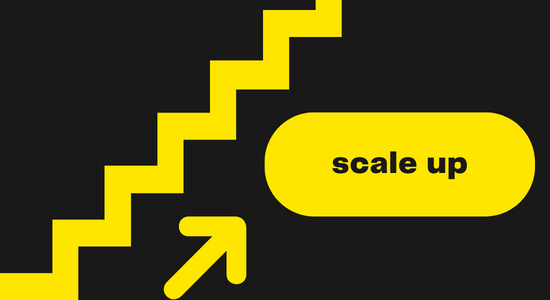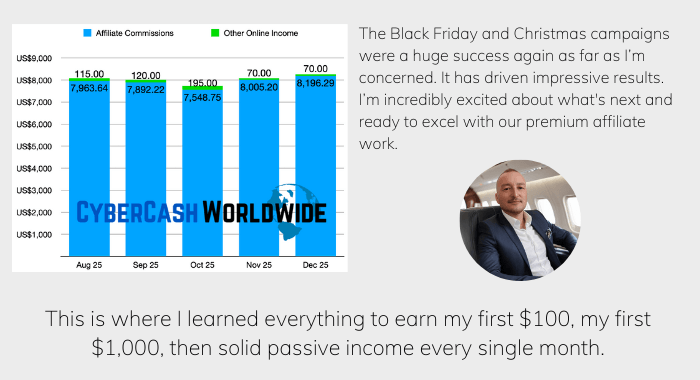Retirement planning used to mean counting pennies and hoping your 401k wouldn't tank right when you needed it most. But here's the tea - sitting around waiting for a measly pension check while watching Netflix reruns isn't exactly the golden years fantasy most of us had in mind. Starting your own business from home during retirement isn't just some pie-in-the-sky dream anymore - it's become a legit way to take control of your finances and actually enjoy your later years.
The beautiful thing about running a business from your living room (or that spare bedroom you've been using as a glorified storage unit) is that you finally get to call the shots. No more dealing with workplace drama, asking permission to take time off, or pretending to care about company potlucks. You've got decades of experience under your belt, connections you've built over the years, and honestly, way less tolerance for nonsense - which turns out to be a pretty solid foundation for entrepreneurship.

Stop Thinking Like an Employee, Start Acting Like a Boss
Here's where things get interesting - after spending most of your adult life showing up to the same office, following someone else's rules, and getting the same paycheck every two weeks, switching to business owner mode feels weird as hell.
Your brain has been trained to think that work equals trading hours for dollars, but running your own show means you get paid based on the value you create, not how long you sit at a desk. This shift takes some getting used to, especially when you realize that your income potential just went from having a ceiling to being completely open-ended.
The hardest part isn't learning new skills or finding customers - it's breaking free from employee mindset. You know that little voice that says "but what if I don't get a steady paycheck?"
Yeah, that one needs to take several seats. Sure, irregular income feels scary at first, but once you start seeing money roll in from multiple sources instead of just one boss who could fire you tomorrow, you'll wonder why you waited so long to make the switch.
Forget Everything You Know About "Job Security"
Job security died sometime around 2008, and nobody sent out a memo. That steady paycheck you've been clinging to comes with strings attached - like mandatory retirement ages, layoffs during "restructuring," and the constant fear that someone younger and cheaper might replace you.
Running your own business flips this script entirely because you become the one making decisions about your work life. Bad client? Fire them. Want to raise your rates? Do it. Need to take three weeks off to visit your sister in Palm Springs? Your calendar, your rules.
The real security comes from having multiple income streams instead of depending on one employer's good mood and quarterly profits. When you have five clients instead of one boss, losing one client means a 20% income dip, not complete financial disaster. Plus, the skills you've developed over decades of work don't just disappear when you hit 65 - they actually become more valuable because you've seen everything and know what actually works versus what sounds good in theory.
What Do You Advocate?
Turn Your War Stories into Profit
All those years of dealing with incompetent managers, fixing other people's mistakes, and solving the same problems over and over again? That's not just workplace trauma - that's your business curriculum.
Every frustrating project you salvaged, every crisis you handled, every system you improved represents knowledge that someone out there desperately needs right now. The difference is now you get paid directly for that expertise instead of making your former employer rich while you collected a salary.
Your professional horror stories are actually success stories in disguise. Remember that time you had to completely reorganize the filing system because nobody could find anything? That's project management consulting. Or when you trained the entire office on the new software because IT was useless? That's corporate training services. The problems you solved without even thinking about it are the exact headaches that keep business owners up at night.
Find Your Money-Making Sweet Spot
The secret sauce for a successful retirement business lies in finding that magical intersection where your skills meet actual market demand. This isn't about following your bliss or doing what makes your heart sing - this is about getting paid well for solving real problems that people actually have.
You want something that energizes you instead of draining you, but it also needs to pay the bills and then some. The good news is that after decades in the workforce, you probably have more marketable skills than you realize.
The key is being honest about what you're genuinely good at versus what you think you should be good at. Maybe you spent 30 years in accounting but secretly you're amazing at organizing events and getting people excited about projects.
Or perhaps you were technically a sales manager but your real superpower was training new hires and helping them succeed. Your official job title might not reflect your actual strengths, and that's where the real opportunities hide.

Dig Deep into What Made You Indispensable
Think back to your peak career moments - not the promotions or fancy titles, but the times when colleagues came to you specifically because they knew you'd get stuff done. What were they asking for help with? What problems did you solve that made everyone's life easier?
These patterns reveal your natural strengths and the areas where you added the most value. If people consistently asked for your advice on handling difficult customers, managing projects, or streamlining processes, those are clues about potential business opportunities.
Make a list of every compliment you received about your work over the past few years. "You're so good with people," "You always know how to explain things clearly," "You never miss a deadline" - these aren't just nice things people said, they're descriptions of valuable business skills. The abilities that made you successful as an employee are the same ones that will make you successful as an entrepreneur, you just need to package them differently.
Match Your Skills to Real Market Problems
Now comes the fun part - figuring out who needs what you're selling. The internet has made market research incredibly easy, so spend some time browsing forums, Facebook groups, and industry websites to see what people are complaining about.
Look for recurring themes, common frustrations, and problems that keep showing up in different places. If you see the same issue mentioned repeatedly, that's market validation for a potential business opportunity.
Don't just focus on your specific industry either - your skills probably translate across different fields. Project management works the same whether you're organizing a construction project or planning a wedding. Customer service principles apply to retail, healthcare, professional services, and pretty much every other business that deals with humans. Cast a wider net and you'll discover way more opportunities than you initially thought existed.
Start Small, Think Big (But Not Too Big)
The beauty of home-based businesses is that you don't need to bet the farm to get started. Forget about business loans, investors, or renting office space - your laptop, wifi connection, and decades of experience are probably enough to launch your first venture.
The goal isn't to build the next Amazon from your spare bedroom, it's to create steady income streams that supplement your retirement funds while giving you something meaningful to do with your time.
Smart entrepreneurs start with service-based businesses because they require minimal upfront investment but generate immediate cash flow. You're essentially selling your time and expertise, which means your main startup costs are business registration, basic insurance, and maybe some simple marketing materials. As you build your client base and reputation, you develop systems that allow you to serve more people without working proportionally more hours.
Fiverr Gig Category Examples
Click each category for detailed view
Logo Design
Brand Style Guides
Fonts & Typography
Business Cards & Stationery
Gaming
Game Art
Graphics for Streamers
Twitch Store
Art & Illustration
Illustration
NFT Art
Pattern Design
Portraits & Caricatures
Cartoons & Comics
Tattoo Design
Storyboards
Web & App Design
Website Design
App Design
UX Design
Landing Page Design
Icon Design
Marketing Design
Social Media Design
Email Design
Web Banners
Signage Design
Packaging & Covers
Packaging & Label Design
Book Design
Album Cover Design
Podcast Cover Art
Car Wraps
Visual Design
Photoshop Editing
Presentation Design
Infographic Design
Vector Tracing
Resume Design
Architecture & Building Design
Architecture & Interior Design
Landscape Design
Building Engineering
Building Information Modeling
Fashion & Jewelry
Fashion Design
Jewelry Design
Print Design
T-Shirts & Merchandise
Flyer Design
Brochure Design
Poster Design
Catalog Design
Menu Design
Invitation Design
Product & Characters Design
Industrial & Product Design
Character Modeling
Trade Booth Design
Design Advice
Social Media Marketing
Social Media Advertising
Search Engine Optimization (SEO)
Local SEO
Marketing Strategy
Public Relations
Content Marketing
Video Marketing
Email Marketing
Web Analytics
Text Message Marketing
Crowdfunding
Marketing Advice
Search Engine Marketing (SEM)
Display Advertising
E-Commerce Marketing
Influencer Marketing
Community Management
Mobile App Marketing
Music Promotion
Book & eBook Marketing
Podcast Marketing
Affiliate Marketing
Articles & Blog Posts
Translation
Proofreading & Editing
Resume Writing
Cover Letters
LinkedIn Profiles
Ad Copy
Sales Copy
Social Media Copy
Email Copy
Case Studies
Book & eBook Writing
Book Editing
Scriptwriting
Podcast Writing
Beta Reading
Creative Writing
Brand Voice & Tone
UX Writing
Speechwriting
eLearning Content Development
Technical Writing
Job Descriptions
White Papers
Website Content
Product Descriptions
Press Releases
Business Names & Slogans
Grant Writing
Transcription
Research & Summaries
Writing Advice
Video Editing
Short Video Ads
Whiteboard & Animated Explainers
Character Animation
Lyric & Music Videos
Logo Animation
Intros & Outros
Visual Effects
Subtitles & Captions
Spokesperson Videos
Unboxing Videos
Animated GIFs
3D Product Animation
Social Media Videos
E-Commerce Product Videos
Product Photography
Live Action Explainers
Lottie & Website Animation
NFT Animation
NFT Art
NFT Services
NFT Development
NFT Promotion Checklist
Character Animation
Corporate Videos
App & Website Previews
Animation for Streamers
Slideshow Videos
Crowdfunding Videos
Meditation Videos
Animation for Kids
Article to Video
Game Trailers
Book Trailers
Real Estate Promos
eLearning Video Production
Video Templates Editing
Screencasting Videos
Local Photography
Drone Videography
Video Advice
Voice Over
Producers & Composers
Singers & Vocalists
Mixing & Mastering
Session Musicians
Online Music Lessons
Podcast Editing
Songwriters
Beat Making
Audiobook Production
Audio Ads Production
Sound Design
Jingles & Intros
Audio Editing
Music Transcription
Vocal Tuning
DJ Drops & Tags
DJ Mixing
Remixing & Mashups
Synth Presets
Meditation Music
Audio Logo & Sonic Branding
Music & Audio Advice
WordPress
Website Builders & CMS
Game Development
Development for Streamers
Web Programming
E-Commerce Development
Mobile Apps
Desktop Applications
Chatbots
Support & IT
Online Coding Lessons
Cybersecurity & Data Protection
Get Your Website in a Few Steps
Electronics Engineering
Convert Files
User Testing
QA & Review
Blockchain & Cryptocurrency
NFT Development
Databases
Data Processing
Data Engineering
Data Science
Virtual Assistant
E-Commerce Management
Market Research
Sales
Customer Care
CRM Management
ERP Management
Supply Chain Management
Project Management
Event Management
Game Concept Design
Business Plans
Financial Consulting
Legal Consulting
Business Consulting
Presentations
HR Consulting
Career Counseling
Data Entry
Data Analytics
Data Visualization
Online Tutoring
Gaming
Astrology & Psychics
Modeling & Acting
Wellness
Traveling
Fitness Lessons
Dance Lessons
Life Coaching
Greeting Cards & Videos
Personal Stylists
Cooking Lessons
Craft Lessons
Arts & Crafts
Family & Genealogy
Collectibles
Consulting: Get Paid for What You Already Know
Consulting is probably the easiest business model for retirees because it monetizes knowledge you've already spent decades acquiring. Companies pay consultants premium rates because they need expertise quickly without the long-term commitment of hiring full-time employees.
Your job is to help them solve specific problems, implement improvements, or avoid costly mistakes - all things you probably did regularly in your previous career, except now you get paid directly for the value you create.
The consulting process typically works like this:
- Initial consultation call to understand their problem
- Proposal outlining how you'll solve it and what it costs
- Contract signing and project kickoff
- Regular check-ins and progress updates
- Final deliverables and project wrap-up
Most consulting projects run 2-12 weeks, giving you flexibility to work with multiple clients or take breaks between engagements. Rates vary by industry and expertise level, but experienced consultants often charge $100-300+ per hour, making this a potentially lucrative retirement income source.
Create Digital Products That Sell While You Sleep
Digital products like online courses, ebooks, templates, and software tools represent the holy grail of retirement businesses because they generate passive income. You create them once, then sell them repeatedly without additional time investment per sale. This model works particularly well for retirees because you can leverage decades of experience to create comprehensive resources that solve common industry problems.
The digital product creation process looks like this:
- Identify a specific problem your target audience faces regularly
- Create a comprehensive solution (course, guide, template, etc.)
- Set up online sales and delivery systems
- Market to your target audience through content and networking
- Collect payments and deliver products automatically
Popular digital product formats include step-by-step courses, industry-specific templates, comprehensive guides, checklists, and software tools. The key is solving a specific problem well rather than trying to create something for everyone.
Build Recurring Revenue Relationships
Monthly or quarterly service arrangements create predictable income that smooths out the ups and downs of project-based work. Think bookkeeping, website maintenance, social media management, or regular reporting - services that businesses need consistently rather than just once. These ongoing relationships build over time, creating a stable income foundation that reduces the stress of constantly hunting for new clients.
Recurring revenue services work best when you can systematize the delivery process. Instead of reinventing the wheel each month, you develop standard procedures and deliverables that maintain quality while maximizing efficiency. This might mean:
- Monthly financial reporting packages with standard templates
- Weekly social media content creation and posting schedules
- Quarterly business review meetings with consistent agendas
- Regular maintenance tasks performed on predictable schedules
The goal is creating value that clients depend on receiving regularly, making your services an integral part of their business operations rather than optional extras they cut during tough times.
Set Up Shop Without Breaking the Bank
Creating a professional home-based business doesn't require fancy offices or expensive equipment, but it does need proper foundation elements that protect you legally and financially while projecting credibility to potential clients. The good news is that modern technology makes sophisticated business tools accessible and affordable for solo entrepreneurs. You want to look and operate like a legitimate business from day one, even if you're working from your kitchen table in pajama pants.
Getting the administrative stuff right from the beginning prevents headaches later and gives you confidence when talking to potential clients. Nobody expects you to have a corner office downtown, but they do expect professional communication, clear contracts, and reliable service delivery. These fundamentals separate actual businesses from weekend hobbies, and clients pick up on the difference immediately.
Legal and Financial Foundations That Actually Matter
Setting up proper business registration, insurance, and accounting systems isn't the fun part of entrepreneurship, but it's absolutely necessary for protecting yourself and projecting professionalism. Most home-based service businesses operate as sole proprietorships or LLCs, both of which are relatively simple and inexpensive to establish. Check with your local small business administration office or secretary of state website for specific requirements in your area.
Here's your basic setup checklist:
- Business registration and any required licenses
- Business bank account (separate from personal finances)
- Basic liability insurance (often available through existing homeowner's policies)
- Simple accounting system for tracking income and expenses
- Professional email address using your business name
- Business phone number (can forward to your personal phone)
The total startup cost for these fundamentals typically runs $500-1000, which should pay for itself within your first few client projects. Don't skip these steps thinking you'll handle them later - it's much harder to retrofit professionalism than to start with it.
Create Systems That Make You Look Bigger Than You Are
Modern technology allows one-person businesses to compete with larger companies by automating routine tasks and delivering professional experiences that clients expect. You don't need a receptionist if you have professional voicemail and email auto-responders. You don't need an accounting department if you use simple invoicing software that handles payments and tracks expenses automatically.
Essential systems for solo entrepreneurs include:
- Client relationship management (CRM) software for tracking contacts and projects
- Professional invoicing and payment processing (PayPal, Stripe, QuickBooks)
- Project management tools for organizing deliverables and deadlines
- Video conferencing setup for client meetings and presentations
- Cloud storage for client files and business documents
- Email marketing platform for staying in touch with prospects and clients
Most of these tools cost $10-50 per month and integrate with each other, creating a seamless professional experience that makes your one-person operation look and feel much larger.

Market Yourself Without Feeling Sleazy
Marketing a retirement business feels different than job hunting because you're selling solutions to problems rather than asking someone to hire you. The best marketing happens when you're genuinely helpful - sharing insights, solving small problems for free, and demonstrating your expertise through actions rather than claims. Your decades of professional experience give you credibility that younger entrepreneurs lack, but only if you communicate that experience effectively.
The most effective marketing for service-based businesses happens through relationships and referrals rather than advertising and cold calling. People hire consultants and service providers based on trust and demonstrated competence, both of which develop over time through consistent value delivery. Your goal is becoming known as the go-to person for specific types of problems, which happens through regular visibility and helpful interactions with your target market.
Leverage Relationships You've Already Built
Your professional network represents decades of relationship building that younger entrepreneurs spend years trying to develop. Former colleagues, industry contacts, suppliers, clients, and even competitors know your work style and capabilities, making them ideal sources for initial business and ongoing referrals. The key is reconnecting with these relationships in a helpful rather than salesy way - sharing updates about your new venture while offering assistance with challenges they might be facing.
Effective network outreach includes:
- Personal emails to former colleagues explaining your new business focus
- LinkedIn updates about your transition to consulting or entrepreneurship
- Industry conference attendance and participation in professional associations
- Coffee meetings or phone calls to catch up and offer assistance
- Sharing helpful content and insights through social media and email newsletters
Don't ask for business directly - instead, ask about their current challenges and offer insights or connections that might help. Business opportunities emerge naturally when people see you as helpful and knowledgeable.
Share Your Expertise Through Content Creation
Creating regular content positions you as an expert while attracting potential clients who are seeking solutions you provide. This doesn't mean becoming a social media influencer or starting a podcast empire - it means consistently sharing valuable insights that demonstrate your knowledge and problem-solving abilities. Content marketing works particularly well for experienced professionals because you have deep knowledge that others need.
Simple content creation strategies include:
- Weekly blog posts about common industry problems and solutions
- LinkedIn articles sharing lessons learned from your career experience
- Industry forum participation answering questions and providing guidance
- Speaking at local business groups and professional associations
- Guest appearances on podcasts or at conferences in your field
The compound effect of consistent content creation builds your reputation and search engine visibility over time, creating a marketing system that works even when you're not actively promoting yourself.
Handle Money Like a Business Owner
Managing finances when your income arrives in irregular chunks requires different strategies than budgeting on a steady salary. Some months you'll have multiple payments arriving simultaneously, other months you'll finish projects without new ones immediately replacing them. Learning to smooth out these cash flow variations while setting aside money for taxes, business expenses, and personal draw becomes a critical skill that determines long-term business sustainability.
The transition from employee to business owner also means taking responsibility for retirement savings, health insurance, and other benefits that employers previously handled. This isn't necessarily more expensive, but it does require active management and planning that many retirees find overwhelming initially. Smart financial management removes much of the stress from entrepreneurship while maximizing the profits you keep from your hard work.
Master Cash Flow Management Before It Masters You
Creating financial buffers before you need them prevents panic when income temporarily decreases or unexpected expenses arise. Many successful entrepreneurs maintain separate accounts for different purposes, automatically transferring portions of each payment into appropriate buckets as money arrives. This systematic approach removes guesswork while ensuring funds are available when needed.
Effective cash flow management includes:
- Business checking account for all income and business expenses
- High-yield savings account for tax obligations (set aside 25-30% of income)
- Separate savings account for business emergency fund (3-6 months expenses)
- Personal account for your regular draw/salary from the business
- Investment account for long-term business profits and retirement savings
Set up automatic transfers so money gets allocated properly without requiring constant attention. Review your accounts monthly to track patterns and adjust allocations based on your actual income and expense trends.
Take Advantage of Business Tax Benefits
Home-based businesses qualify for numerous tax deductions that employed individuals cannot claim, potentially saving thousands of dollars annually in tax obligations. However, these benefits only apply if you maintain proper records and understand IRS requirements for business expense deductions. Simple tracking systems prevent missed opportunities while avoiding audit triggers that create problems later.
Common business deductions for home-based entrepreneurs include:
- Home office space (percentage of mortgage/rent, utilities, maintenance)
- Business equipment and supplies (computer, printer, office furniture)
- Professional development (courses, books, conferences, certifications)
- Travel expenses for client meetings and business activities
- Phone and internet costs used for business purposes
- Professional services (accountant, lawyer, business coach)
Keep receipts for everything and track business versus personal use for mixed expenses like your phone or internet service. Simple accounting software or spreadsheet systems organize this information while generating reports that simplify tax preparation and business analysis.

Scale Smart, Not Just Hard
Growing your retirement business doesn't necessarily mean working more hours or handling more clients - it means increasing revenue while maintaining or improving your quality of life.
Some entrepreneurs focus on raising prices and serving fewer, higher-value clients, while others systematize their services to handle more volume efficiently. The key is growing intentionally based on your personal goals rather than simply accepting every opportunity that comes along.
Sustainable growth requires systems that handle increased demand without proportionally increasing your stress levels or time commitment. This might mean developing standardized service packages, creating client self-service resources, or automating routine tasks that consume time without adding value. The objective is building a business that serves your retirement lifestyle rather than overwhelming it with endless work demands.
Raise Your Rates Like You Mean It
Many new entrepreneurs undervalue their services, competing on price rather than demonstrating value through superior results and service quality. As your reputation grows and client results improve, regularly review and adjust your pricing to reflect the value you actually deliver.
Confident pricing attracts serious clients while filtering out bargain hunters who often prove to be problematic relationships anyway.
Price increases should reflect:
- Improved efficiency and faster project delivery
- Enhanced expertise and specialized knowledge development
- Strong client results and positive testimonials
- Market demand exceeding your available capacity
- Rising business expenses and inflation adjustments
Don't apologize for charging what you're worth - clients who value quality service understand that expertise commands premium pricing. Higher rates also provide more resources for business improvements, professional development, and quality of life enhancements that make long-term entrepreneurship sustainable and enjoyable.
Build Systems That Work Without You
The ultimate goal of business systematization is creating processes that deliver consistent quality regardless of whether you're having a good day or dealing with personal distractions. Well-designed systems reduce decision fatigue, improve client experiences, and make your business more valuable if you ever decide to sell it or bring on additional help.
Essential business systems include:
- Client onboarding process with standard forms and welcome materials
- Project management workflows with clear milestones and deliverables
- Quality control checklists ensuring consistent service delivery
- Communication templates for common client interactions
- Financial processes for invoicing, payments, and expense tracking
- Marketing systems that generate leads consistently without constant attention
Document these processes as you develop them, creating instruction manuals that allow others (or future you) to maintain quality standards even when circumstances change. Good systems become valuable business assets that reduce your daily workload while improving overall results.
Your Second Act Starts Now
Running a home-based business during retirement represents a fundamental shift from traditional ideas about aging and work. Instead of viewing retirement as winding down, entrepreneurship transforms it into ramping up - building something meaningful while generating income entirely on your terms.
The combination of accumulated wisdom, reduced financial pressure from mortgage payments and child-rearing expenses, plus modern technology creates opportunities that previous generations never had.
Success in retirement entrepreneurship doesn't require luck, massive financial investment, or superhuman energy levels. Your decades of experience, professional relationships, and refined problem-solving abilities represent assets that younger entrepreneurs spend years trying to develop.
The question isn't whether you have what it takes to succeed - it's whether you're ready to stop accepting other people's limitations on your potential and start building something that reflects your values, expertise, and vision for your golden years. The best time to plant a tree was 20 years ago, but the second-best time is right now.

